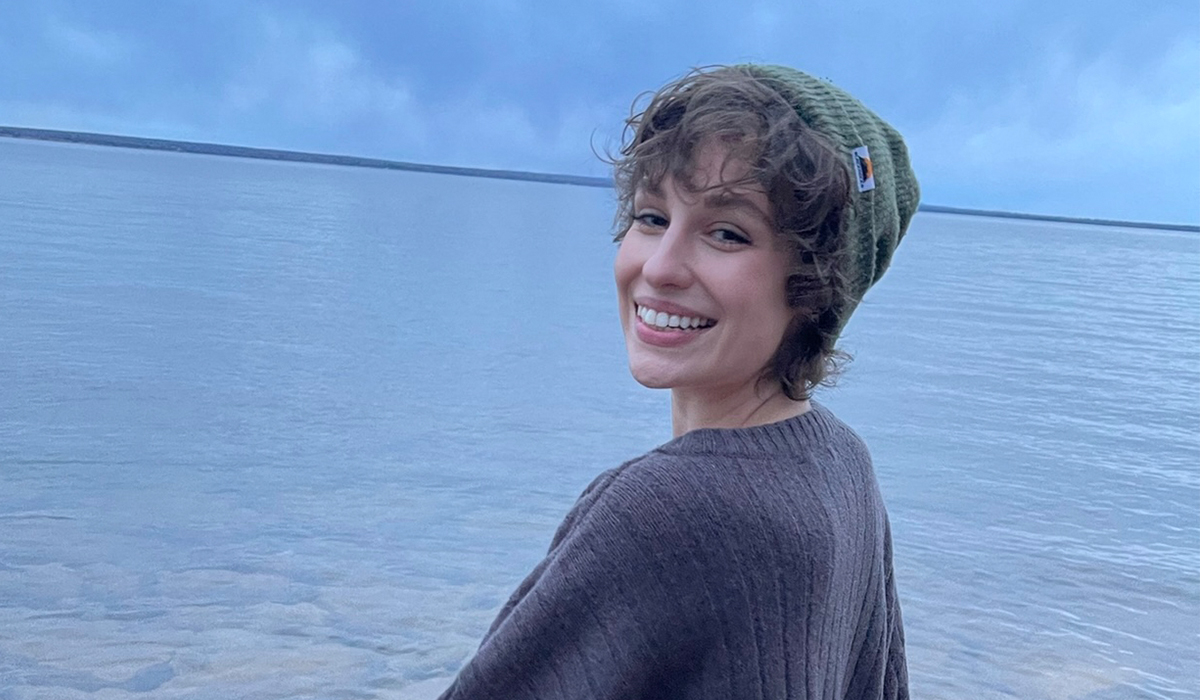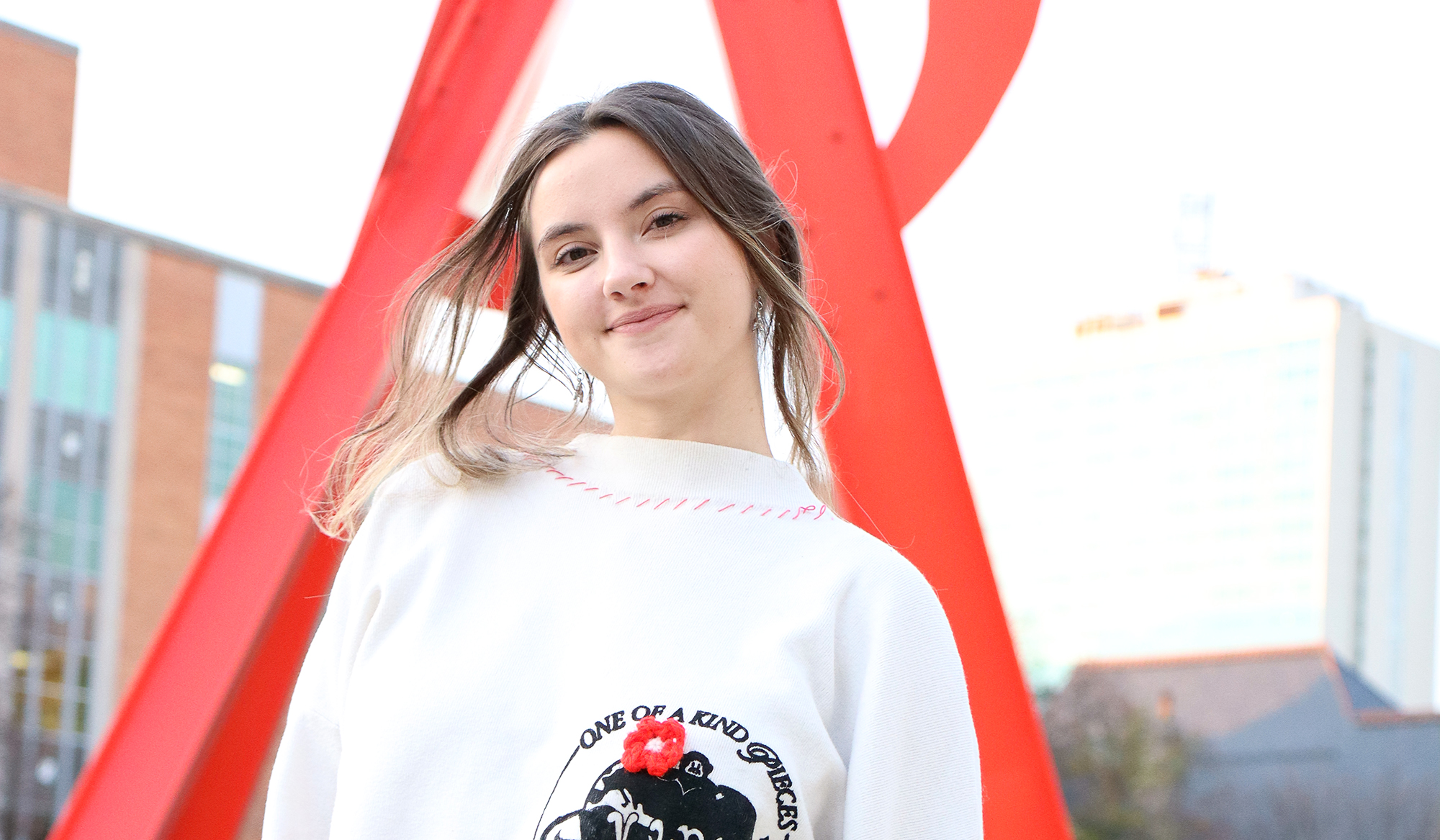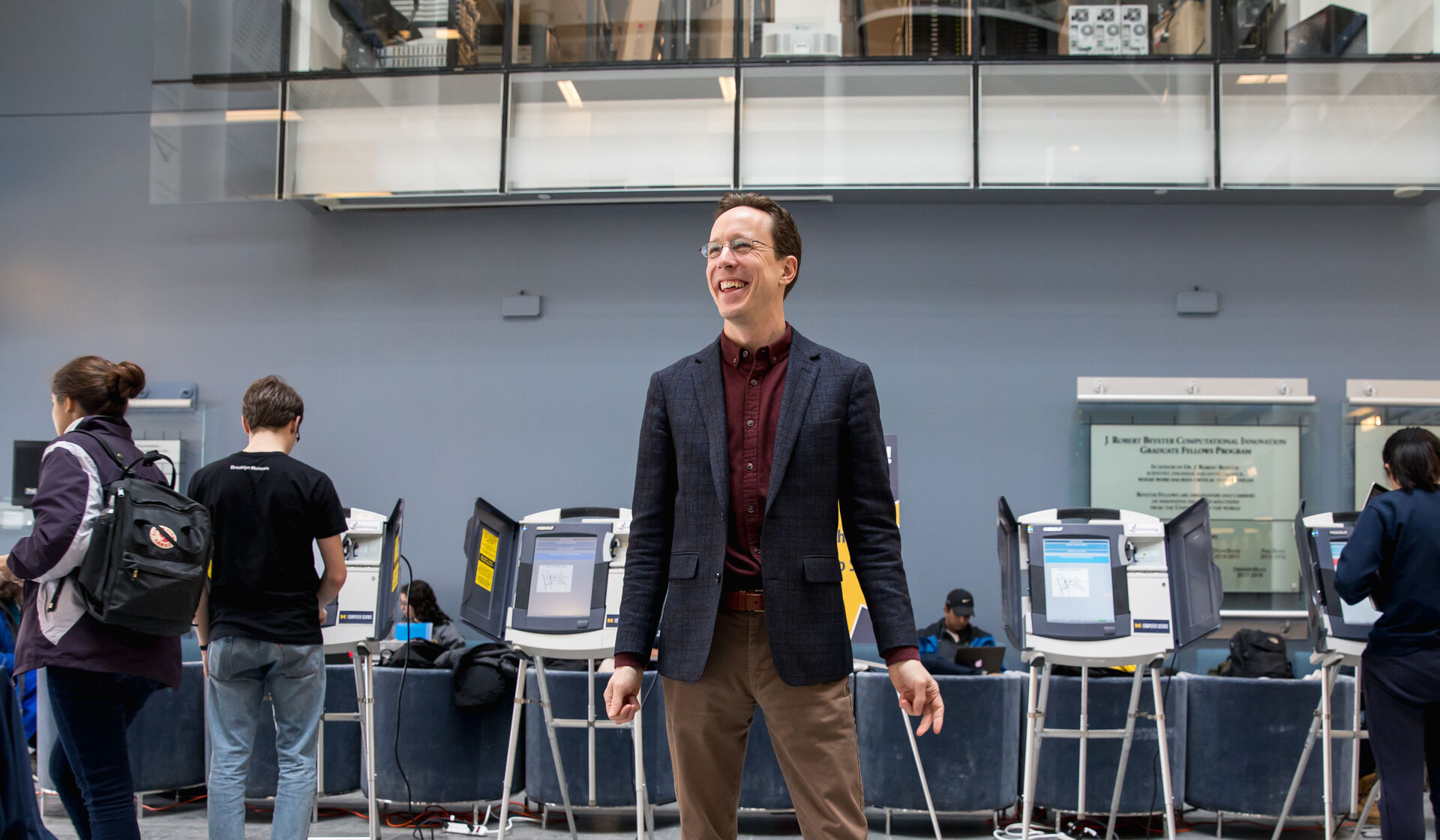Chloe Hale has spent her undergraduate career engaged in research and service to support survivors of torture, solitary confinement, and other human rights violations. Currently in her final year at U-M, she is this year’s recipient of the Wallenberg Fellowship, announced on March 20 at the Honors Convocation. The award will give her the opportunity to work with researchers at the University of Rwanda to study the impact of COVID-19 policies on women and girls in the country.
Michigan Alum gleaned the following in a conversation with Hale.
WHILE GROWING UP in the Upper Peninsula of Michigan, Hale nurtured a desire to become a citizen of the world. “It’s so beautiful, and the people are really great,” Hale said of the UP. “But it definitely left me with a desire to explore different cultures and ways of life.”
Hale’s parents, both social workers, instilled in her a passion to serve others. “Both of them have definitely influenced me in the way they live their lives—very much dedicated to service and advocating for the protections of vulnerable people in our community.”
AT U-M, Hale has double majored in political science and social theory and practice (STP) and refined her research skills, applying them to real-world problems. This year, she has worked on two independent research projects—her honors thesis in political science, focusing on survivors of human rights abuses in Uganda, and a capstone project in STP on the use of solitary confinement in the United States. Both projects draw on her experience as an intern at Torture Abolition and Survivors Support Coalition International, a nonprofit that supports survivors of torture and their families.
ACCORDING TO HALE, social science research offers an opportunity to lead with empathy. “I feel like I’m not the typical leader in the sense of a politician,” Hale said. “But I do think it’s really important for a leader to have active listening skills, to see and hear people, and then to be able to play to their strengths.”
Hale expressed her affinity for qualitative methods, like interviews, that elevated the voices of marginalized groups. “That’s the rewarding part of research for me,” Hale said, “just because I learn so much about the human experience by talking to people and hearing their stories.”
DURING HER FELLOWSHIP, Hale will bring both her research experience and leadership ethic to a team of doctoral researchers led by Stefan Jansen at the University of Rwanda. Through a series of interviews with teachers and students, she aims to elucidate the relationship between COVID-19 lockdown policies and rates of teenage pregnancy and sexual exploitation in Kigali.
In addition to her impressive achievements, Hale also readily acknowledged her subjective position in the research process. “I’m an outsider in this community,” Hale explained, “and my identity and my assumptions will be included for the reader to review.” It is this sense of responsibility and desire to work closely with others, she added, that will steer her and her team toward improving the lives of the people with whom they are working.
Alexander Satola, ’21, is a graduate of the LSA Residential College.





